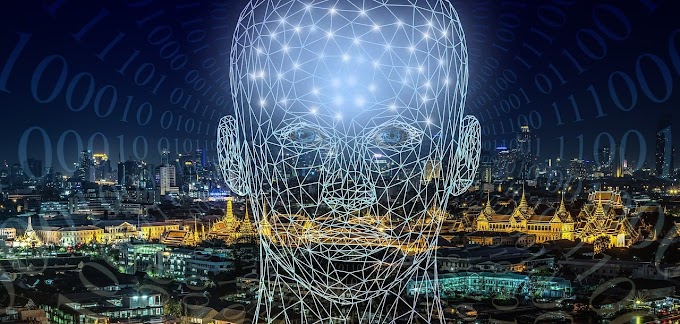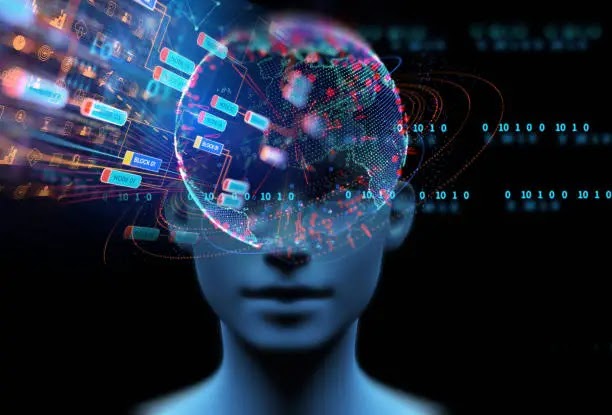In an age where technology is reshaping the landscape of healthcare, artificial intelligence (AI) is emerging as a powerful tool to improve mental health care. With its ability to process vast amounts of data, identify patterns, and provide personalized interventions, AI is transforming the way we understand and treat mental health disorders. In this article, we will delve into the ways AI is being used to revolutionize mental health care, from early detection to personalized treatment plans.
AI-Powered Early Detection
1: Significant Challenge
- Mental health care faces a major challenge in identifying conditions at an early stage.
- Many individuals silently struggle with mental health issues, often without seeking help or receiving a diagnosis.
2: Undiagnosed Conditions
- A significant number of mental health conditions go undiagnosed until they escalate to a crisis point.
- Delayed diagnosis can result in more severe symptoms and reduced treatment effectiveness.
3: AI's Role
- Artificial Intelligence (AI) is playing a transformative role in addressing this challenge.
4: Data Sources
- AI leverages various data sources, such as social media posts, speech patterns, and biometric data.
5: Early Detection
- AI's primary role in this context is to detect early signs of mental health issues.
6: Natural Language Processing (NLP)
- NLP algorithms are a key component of AI used to analyze textual data.
- They can identify keywords and sentiment in text data.
7: Alerting Healthcare Providers
- NLP algorithms can provide alerts to healthcare providers when concerning patterns or keywords are detected.
8: Proactive Approach
- Timely intervention and support can prevent the escalation of mental health issues and improve outcomes.
AI-driven early detection represents a proactive approach to mental health care.
Personalized Treatment Plans
Personalized Treatment Plans: Artificial Intelligence (AI) has emerged as a pivotal tool in revolutionizing mental health care. Beyond its role in early detection, AI plays a crucial role in customizing treatment plans for individuals. Machine learning algorithms power this capability by scrutinizing patient data to formulate personalized therapies, medication schedules, and counseling strategies. These recommendations are grounded in an individual's distinct medical history, genetic makeup, and responses to past treatments. Such tailoring of treatment plans can yield substantial enhancements in treatment outcomes.
AI's prowess in personalization is game-changing for mental health. By leveraging an individual's unique attributes and experiences, it optimizes the treatment process. For instance, it can suggest therapies that have proven effective for people with similar genetic profiles or recommend medications based on one's tolerance and compatibility. Moreover, AI continuously adapts these recommendations as it processes more data and learns from real-time patient progress.
In conclusion, AI's contribution to personalized mental health treatment plans marks a significant advancement in healthcare. By harnessing the power of data and machine learning, it enables clinicians to deliver more effective and tailored care, ultimately improving the lives of individuals struggling with mental health challenges.
AI-Driven Chatbots and Virtual Therapists:
Accessibility
AI-driven chatbots and virtual therapists are easily accessible to individuals seeking mental health support. They are available round-the-clock, eliminating the limitations of traditional office hours and appointment scheduling.
Non-Judgmental Space
These digital assistants offer a non-judgmental and confidential space for users to share their feelings and thoughts. This anonymity can encourage individuals to open up about their mental health concerns, especially when they might feel hesitant or embarrassed to do so with a human therapist.
Immediate Support
AI-powered chatbots can provide immediate responses and support. They are not bound by time constraints, ensuring that individuals receive help precisely when they need it. This can be crucial during moments of crisis or heightened emotional distress.
Coping Strategies
AI-driven solutions can offer coping strategies and techniques to help individuals manage their mental health. These strategies can range from breathing exercises and mindfulness techniques to suggestions for self-care activities, all tailored to the user's specific needs.
Referrals to Human Therapists:
While AI chatbots can be incredibly helpful, they are not a replacement for human therapists. AI can recognize when a situation requires the expertise of a human therapist and can provide referrals accordingly. This ensures that individuals receive appropriate care and intervention when necessary.
Bridging the Gap in Mental Health Care Access
AI-driven chatbots and virtual therapists play a crucial role in addressing the disparity in mental health care access, particularly in underserved communities. These communities often face barriers such as a shortage of mental health professionals or geographical remoteness. AI-driven solutions can help fill this gap by providing accessible and cost-effective mental health support.
Scalability
AI-driven mental health solutions are scalable, meaning they can assist a large number of users simultaneously. This scalability is vital in situations where there is a surge in demand for mental health services, such as during public health crises or emergencies.
In summary, AI-driven chatbots and virtual therapists offer a range of benefits in mental health care, including accessibility, immediate support, non-judgmental spaces for expression, and the ability to refer users to human therapists when needed. These AI-driven solutions are instrumental in bridging the gap in mental health care access, making mental health support more readily available to individuals, including those in underserved communities.
Monitoring and Predictive Analytics
Continuous monitoring of mental health is crucial for maintaining well-being and preventing relapses. AI plays a pivotal role by analyzing data from wearables like smartwatches and fitness trackers to track heart rate, sleep patterns, and activity levels. By detecting anomalies compared to an individual's baseline, AI can predict impending mental health crises, allowing for timely intervention. This proactive approach harnesses technology to provide personalized support, ultimately enhancing mental health outcomes.
Reducing Stigma and Providing Anonymity
AI technology plays a pivotal role in mitigating the stigma surrounding mental health by offering users a discreet and confidential avenue for seeking assistance. By harnessing AI-powered mental health apps and platforms, individuals can access support while maintaining their anonymity. This anonymity is especially crucial for those reluctant to engage in traditional face-to-face therapy. These AI-driven solutions create a non-judgmental and safe space, empowering people to address their mental health concerns without the fear of social repercussions. As a result, AI not only enhances access to mental health resources but also aids in destigmatizing mental health issues, fostering a more inclusive and supportive environment for those in need.
Finally
AI is revolutionizing mental health care by offering innovative solutions for early detection, personalized treatment, and ongoing support. As an expert writer, I can confidently say that AI's role in mental health care is poised to continue growing, providing individuals with the tools and resources they need to maintain their mental well-being. These advancements not only improve patient outcomes but also reduce the stigma surrounding mental health, making it easier for everyone to access the care they deserve. Embracing AI in mental health care is a significant step toward a more compassionate and inclusive society.
See more About Artificial Intelligence
The future of AI in healthcare (what to expect in the next 5-10 years)
Navigating the Moral Maze: AI's Impact on Healthcare Ethics
AI-Powered Tools Making Healthcare Accessible and Affordable
How AI is Revolutionizing Healthcare: Transforming Diagnosis and Treatment






